Char Dham Yatra Health Tips 2025:
The sacred gates of Char Dham (Gangotri, Yamunotri, Kedarnath, Badrinath) in Uttarakhand are opening on April 30. Millions have already registered for this spiritual journey. Pilgrims from around the globe come to reach these divine temples, nestled over 10,000 feet above sea level, through challenging rugged terrains and steep paths.
This yatra is not only spiritually significant but also physically demanding due to the tough terrains, hilly regions, and unpredictable weather. Pilgrims of all ages take part in Char Dham Yatra, but older adults, children, or those with heart conditions may face health challenges during the trek.
The arduous journey can sometimes claim lives due to heart and respiratory issues, leading to unfortunate news. To address this concern, we consulted heart and lung specialists to understand how one can check their fitness before setting out on such treks and improve heart and lung health by being mindful of certain practices.
How challenging is trekking on the hills for the heart?
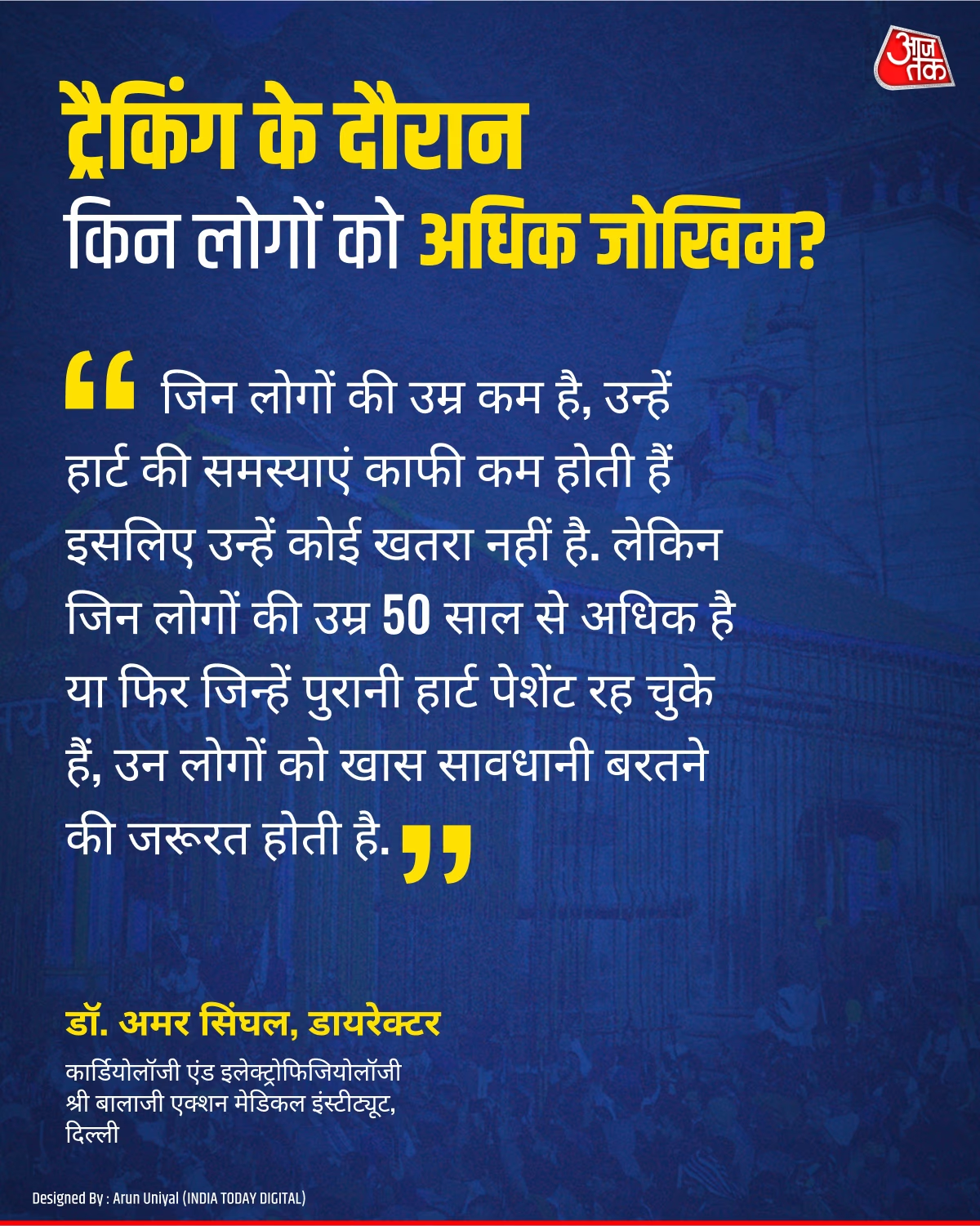
Source: aajtak
Dr. Amar Singhal, Director of Clinical and Critical Cardiology and Electrophysiology at Shree Balaji Action Medical Institute, Delhi, explains, 'Younger individuals usually have fewer heart problems and may not require extensive check-ups. However, those over 50, or with prior heart ailments, should exercise special caution.'
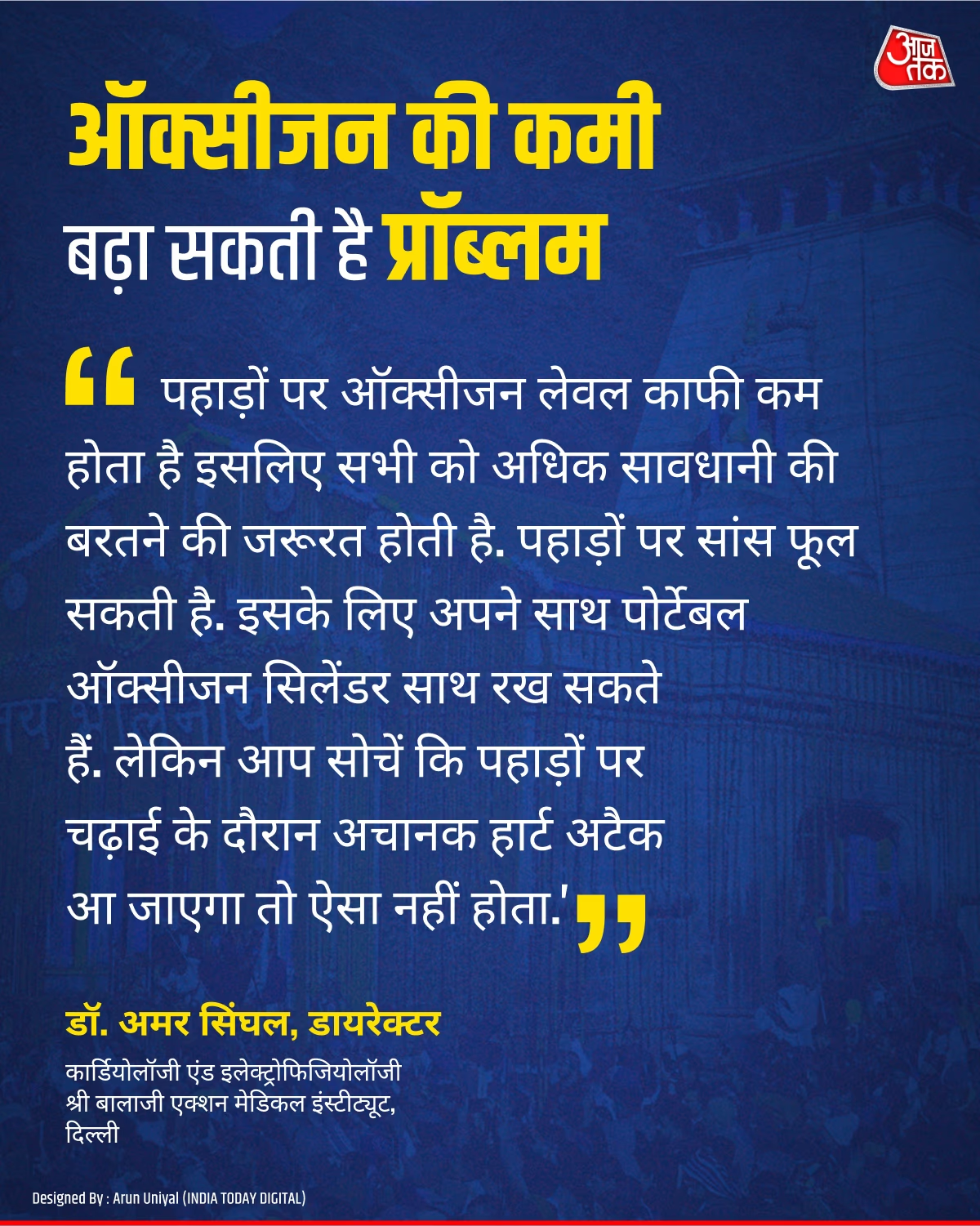
Source: aajtak
'The problem is, oxygen levels are significantly low in the mountains, demanding extra caution. Climbers should take gradual increases to higher altitudes — first to 2,000 feet, then 5,000, before attempting 7,000 feet instead of a sudden ascent. This process, known as acclimatization, helps the body adjust to new terrains or weather changes, enabling health maintenance even at 10,000-12,000 feet (the average altitude of Char Dham).' If you feel breathless, consider using supplemental oxygen, though there's no need to fear unexpected heart attacks during these climbs.'
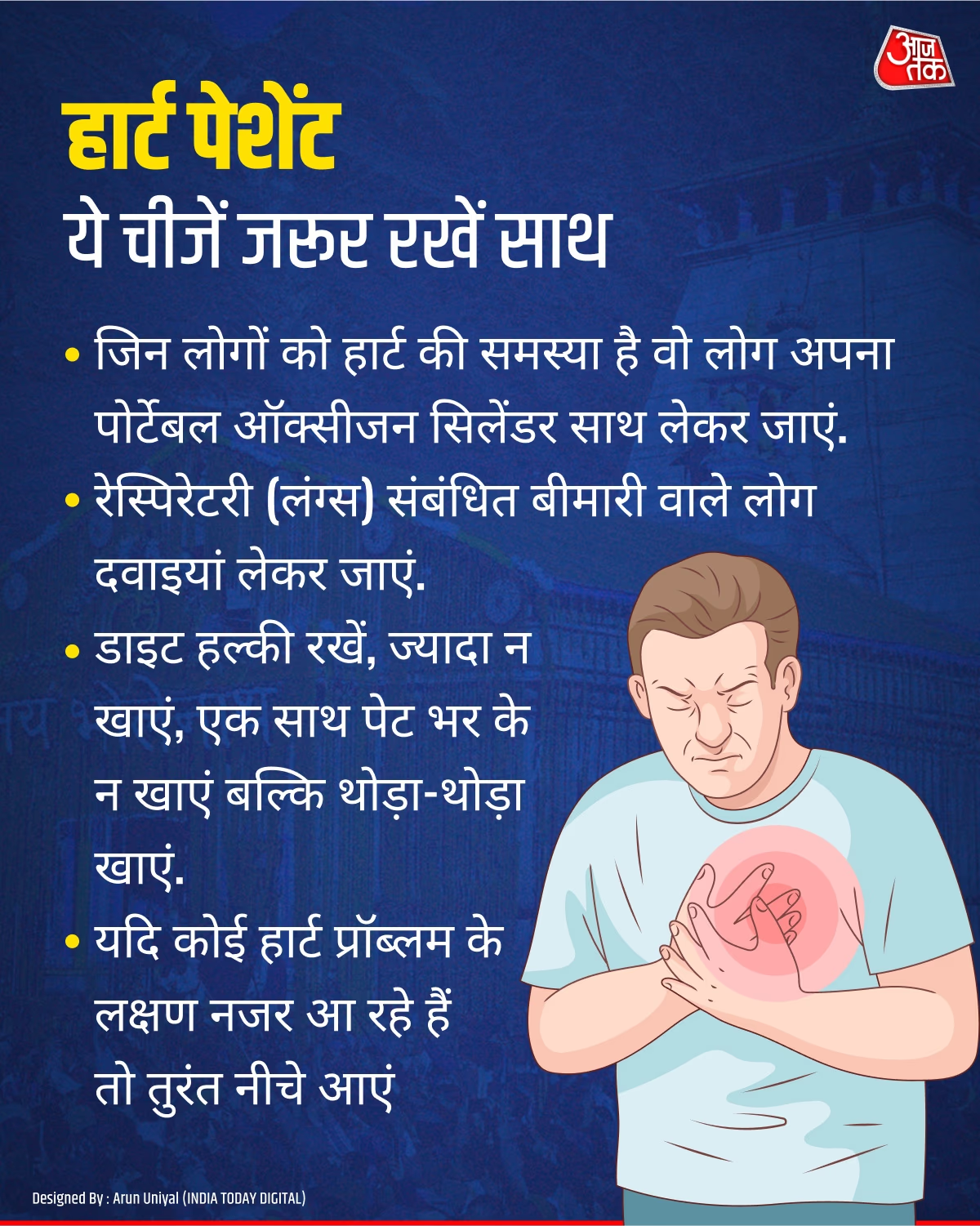
Source: aajtak
'Those with heart conditions should carry portable oxygen cylinders. People with respiratory or heart problems need to be exceptionally careful. Continue prescribed medications, maintain a light diet, don't overeat — take small frequent meals. If any symptoms of heart issues appear, descend immediately.'
'If a healthy individual ascends suddenly, it may lead to non-cardiogenic pulmonary edema — fluid accumulation in the lungs that isn't heart-related. Symptoms include breathing difficulty, blue or brown lips, cough, fatigue, and decreased blood oxygen. Descend immediately if such symptoms occur. Avoid abrupt climbs. Rest for 24 hours near the area before resuming your ascent.'
How to Assess Heart Strength?
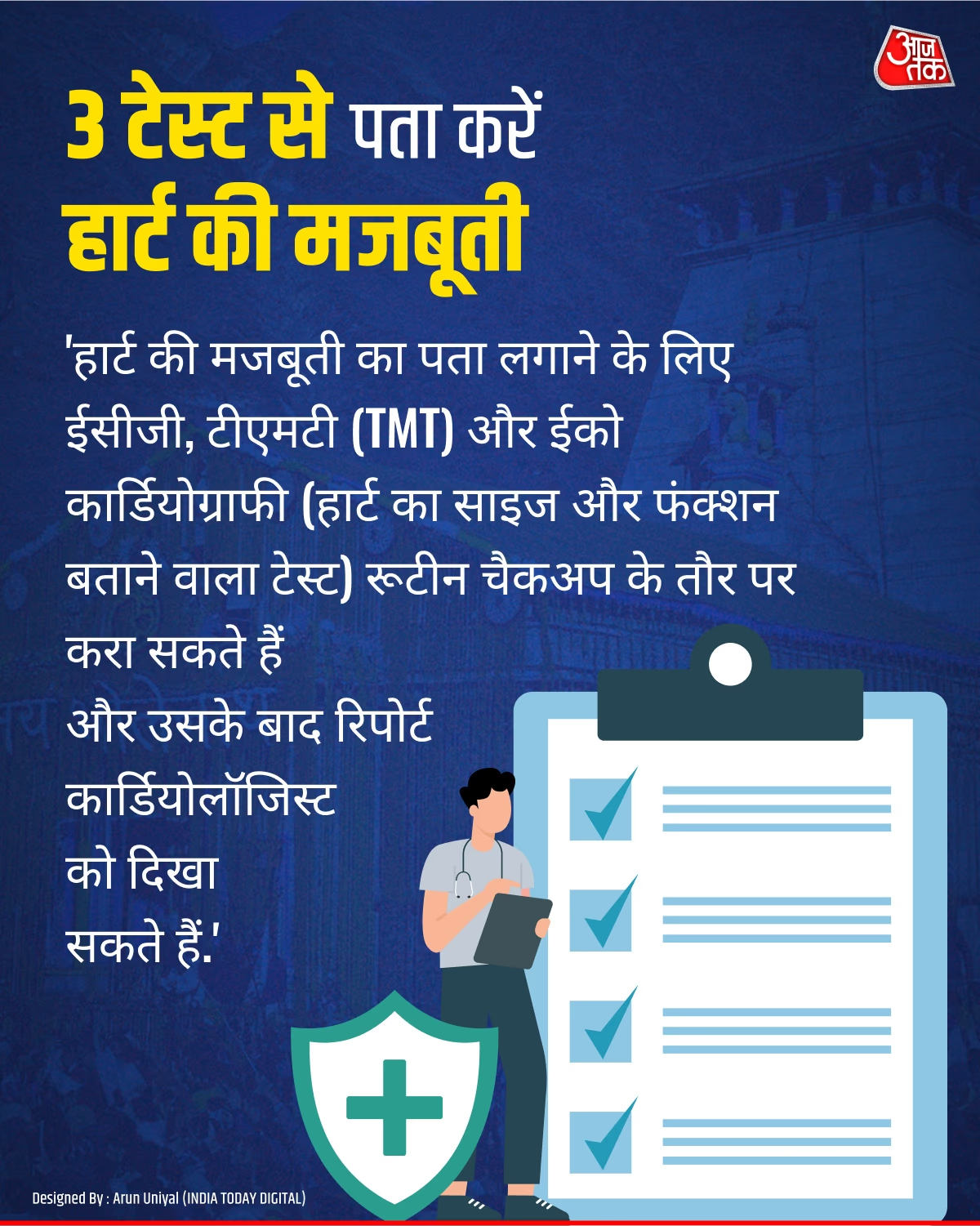
Source: aajtak
According to Dr. Amar, 'To evaluate heart capacity or strength, a treadmill test, echocardiography, and some cardiac tests are available. Routine tests such as ECG, TMT, and echocardiography (which assesses heart size and function) can be performed, followed by consultation with a cardiologist.'
First-Time Trekkers Should Be Mindful of These Tips
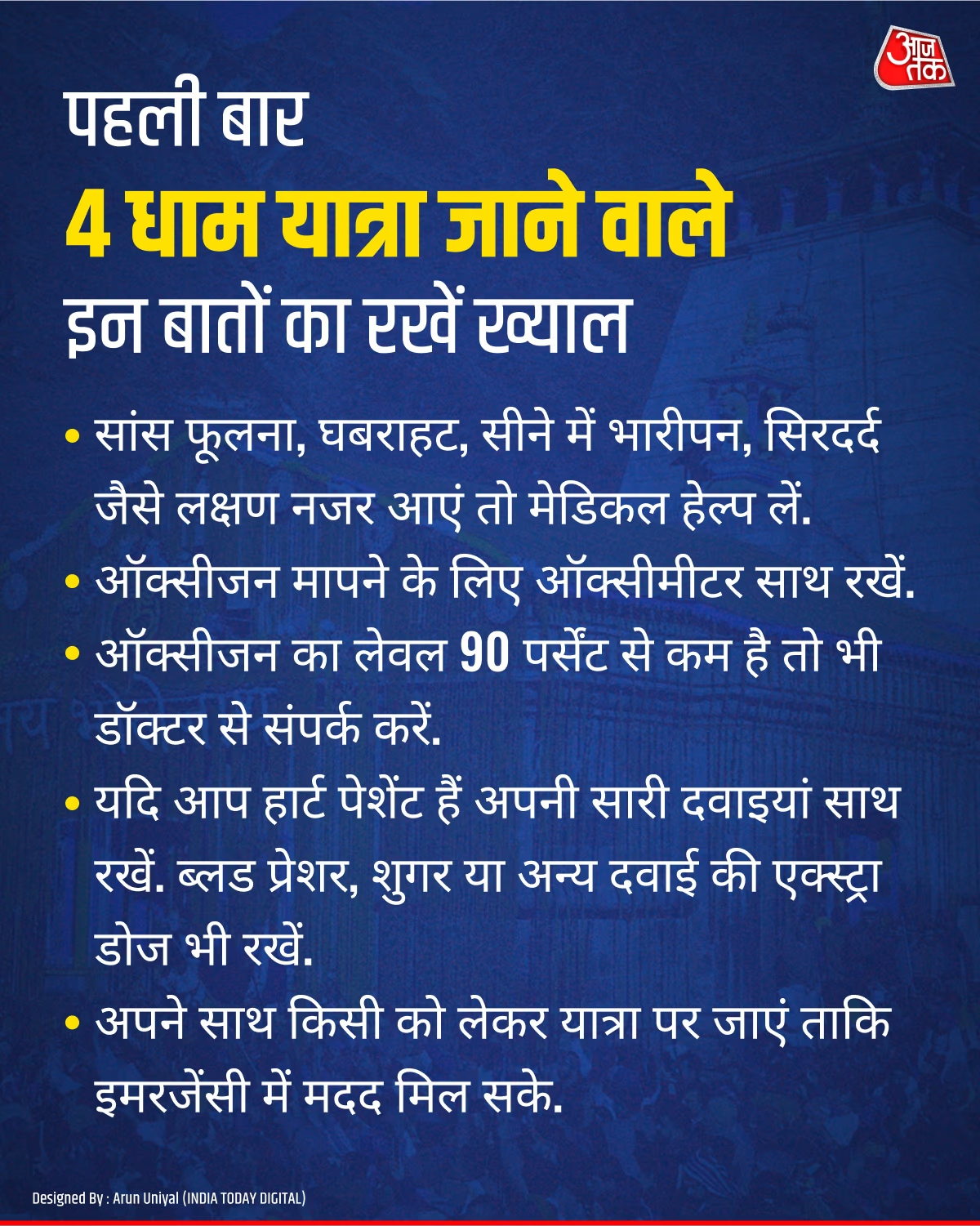
Source: aajtak
'If anyone has heart-related issues, observe symptoms like breathlessness, anxiety, chest heaviness, or headaches, and seek medical help. Carry an oximeter for monitoring oxygen levels. If oxygen saturation falls under 90%, seek substantial medical aid and tread cautiously.'
'For emergency care, a normal person may not need specific equipment, but heart patients should keep all medications handy. Aspirin, blood pressure, or diabetes medications should be readily available. Have someone accompany you in case of emergencies.'
How to Prepare Yourself for Char Dham Yatra?
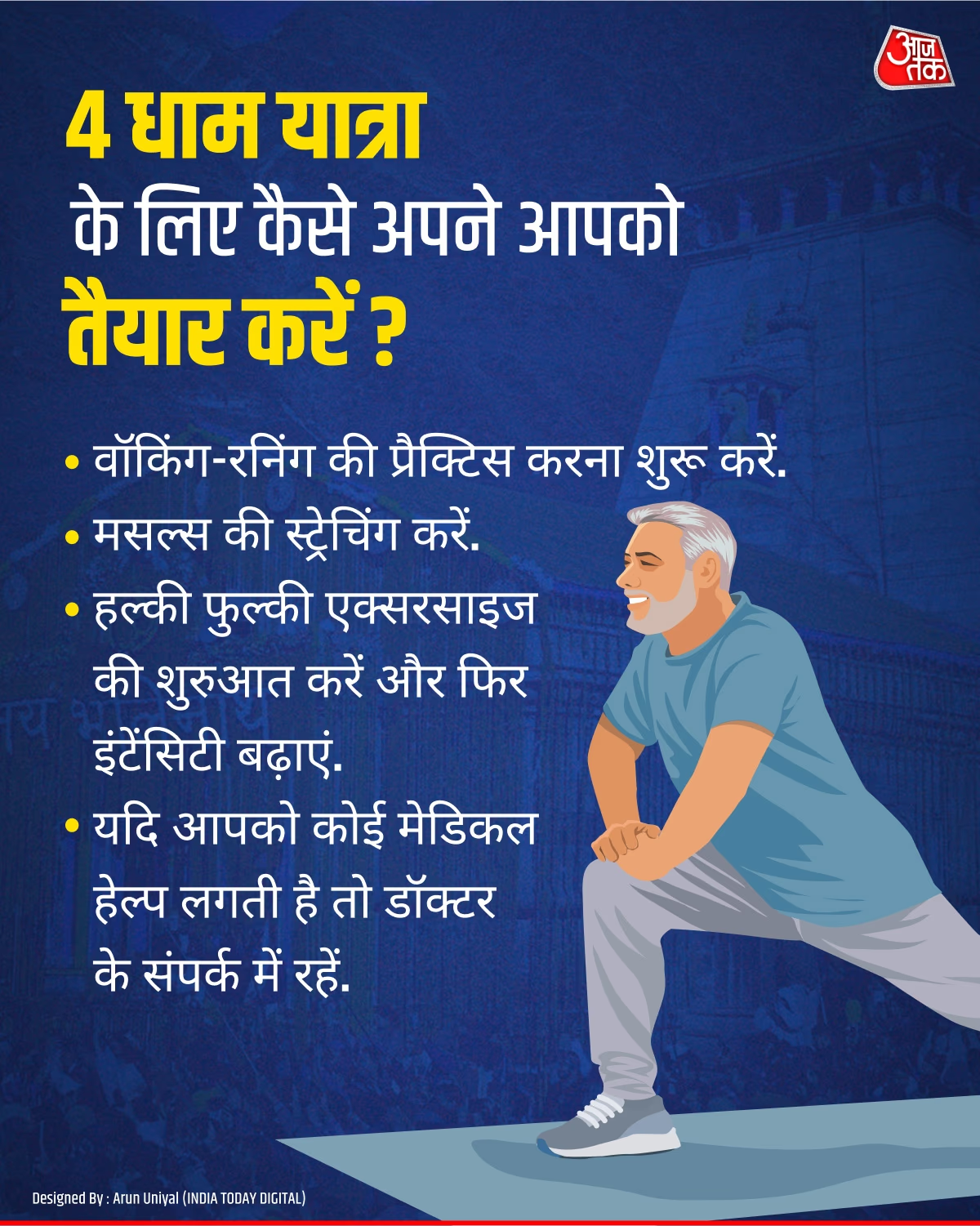
Source: aajtak
Dr. Amar advises, 'No need for extra rigorous preparation for Char Dham Yatra. Maintain a healthy diet, keep walking and running regularly to avoid bodily shocks. Stretch your muscles frequently and stay hydrated. If not active routinely, start with light exercises, then gradually increase intensity. Don’t rush the climb — ascend gradually based on your capacity. Lastly, listen to your body, avoid overexertion. Take regular breaks during the trek and consult a doctor if you feel unwell.'
Focus on Cardiovascular Fitness
For Char Dham Yatra, you'll face long, strenuous hikes. A sturdy cardiovascular fitness is essential. Incorporate daily activities like walking, jogging, cycling, or swimming to enhance endurance. Engage in 30-45 minutes of cardio exercise at least five days a week.'
Diet Measures
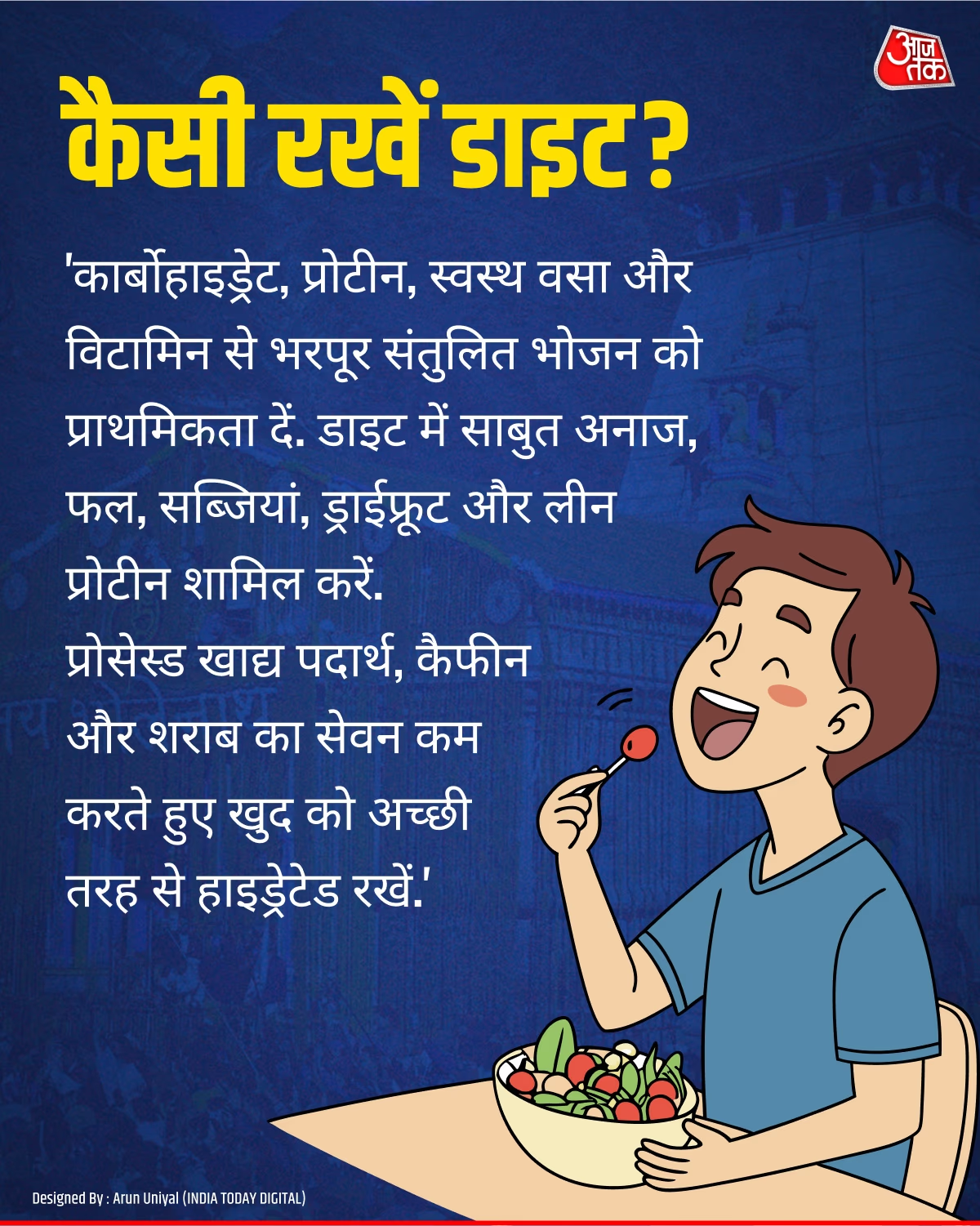
Source: aajtak
Dr. Amar suggests, 'Prioritize a balanced diet rich in carbohydrates, proteins, healthy fats, and vitamins. Include whole grains, fruits, vegetables, dry fruits, and lean proteins in your meals. Reduce intake of processed foods, caffeine, and alcohol, ensuring you remain hydrated.'




